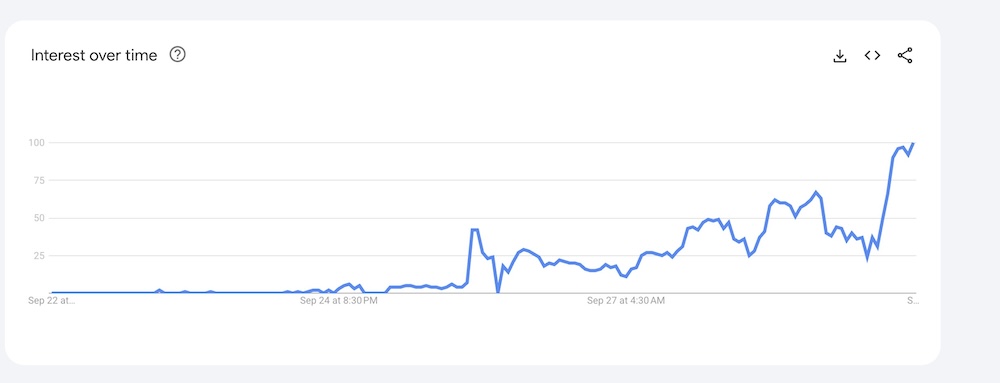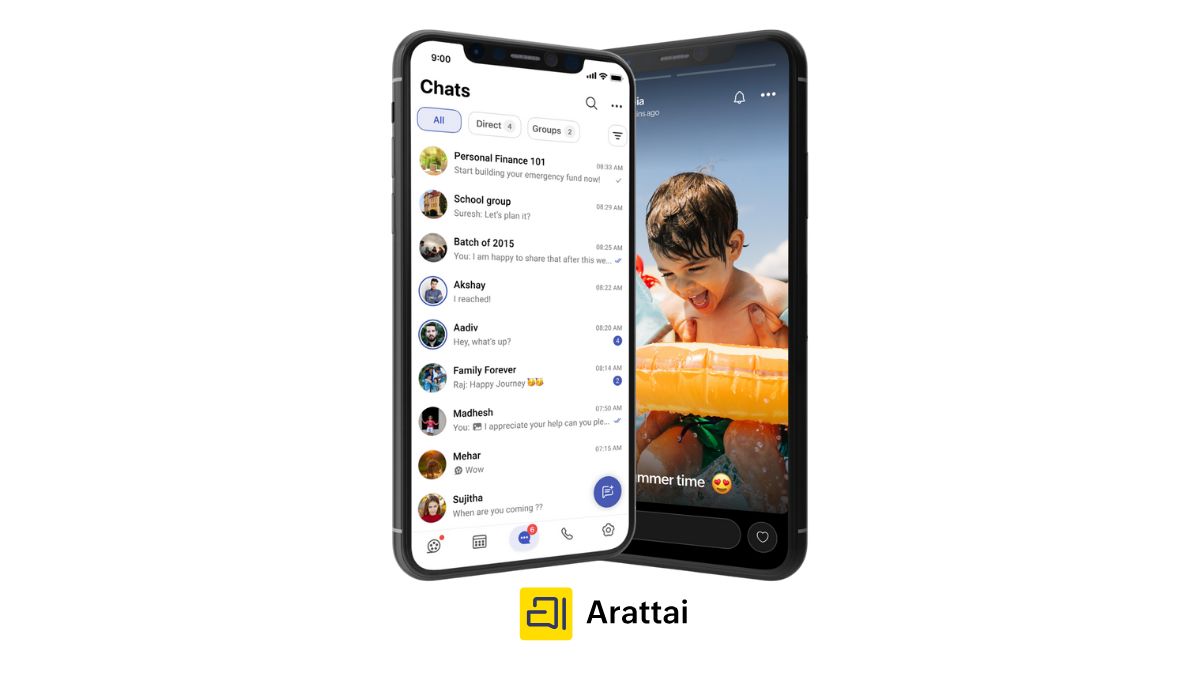When I first signed up for Arattai back in 2021, I convinced three of my friends to join me. We quickly realized the biggest problem with any new messaging app: no one else was there. Without people to talk to, it was impossible to stick around. Like many, we eventually drifted back to WhatsApp and Telegram, where everyone already was.
Fast forward to 2025, and suddenly Arattai is everywhere. The Zoho-backed messaging app is trending, people are talking about it on social media, and news outlets are calling it a rising challenger. But calling it an “overnight success” would be misleading. What we are witnessing today is the result of four years of patience, persistence, and timing finally lining up in Arattai’s favor.
The surge in interest is clear when you look at Google Trends over the past week. It shows a sharp spike in searches for Arattai, a tangible sign that the app is finally capturing widespread attention.

Zoho Played the Long Game
Most tech companies launch a product, expect quick adoption, and shut it down if growth does not happen fast. Google is a good example of this. Its game streaming service and Google Glass had potential, but without patience, they never became the next big thing. Zoho is different. With Arattai, they quietly kept building, improving, and keeping the lights on even when hardly anyone was using it. That patience is what is helping them taste success today.
The company’s DNA is all about the long game. They did not give up when users like me stopped opening the app in 2021. Instead, they kept refining it. They kept making it lighter, privacy-focused, and better suited for Indian conditions where patchy networks and budget smartphones are common. That patience is paying off now.
Why Now?
The sudden buzz around Arattai can be explained by a mix of factors. The most notable factor is the “Vocal for Local” sentiment and national pride. People increasingly want to support Indian-made alternatives.
Adding to the momentum, Union Education Minister Dharmendra Pradhan publicly praised Arattai, calling it a secure, free, and user-friendly messaging platform. He urged Indians to adopt the app, linking its rise to Prime Minister Narendra Modi’s vision of a “Swadeshi” digital ecosystem that promotes indigenous innovation and self-reliance.
What Comes Next
Momentum is fragile in tech. Arattai now has an opening, but keeping users engaged will be harder than getting them to download the app.
According to Zoho’s founder, Sridhar Vembu, the surge has been extraordinary. Within three days, traffic jumped 100x, with sign-ups skyrocketing from 3,000 per day to 350,000 per day. “We are adding infrastructure on an emergency basis for another potential 100x peak surge. That is how exponentials work,” he said in a social media post.
Vembu also confirmed that Zoho is working around the clock to scale infrastructure, fine-tune the code, and fix issues in real time. “We have a lot more planned for Arattai. Please give us some time. Thank you for your patience and support! Jai Hind,” he added.
To succeed, Arattai must market itself aggressively as a privacy-first, Indian-made alternative. It should also keep innovating with features that matter, not just cloning WhatsApp or Telegram. It should build strong community trust by listening to feedback and staying transparent about privacy.
Can Arattai Ever Beat WhatsApp or Telegram?
The global scale of WhatsApp and Telegram is almost impossible to match. The network effect is too strong. People use these apps because everyone they know already uses them. But Arattai does not need to conquer the world to be successful. India already has over 800 million internet users. Even a fraction of that is enough to make Arattai massive.
There’s also the possibility of government adoption or subtle encouragement. If officials and institutions begin using Arattai for communication, it could give the app an instant credibility boost
Beyond that, Arattai could evolve into a ‘super app’ by bringing payments, services, and business tools together in one place. But there is no need to rush into this.











